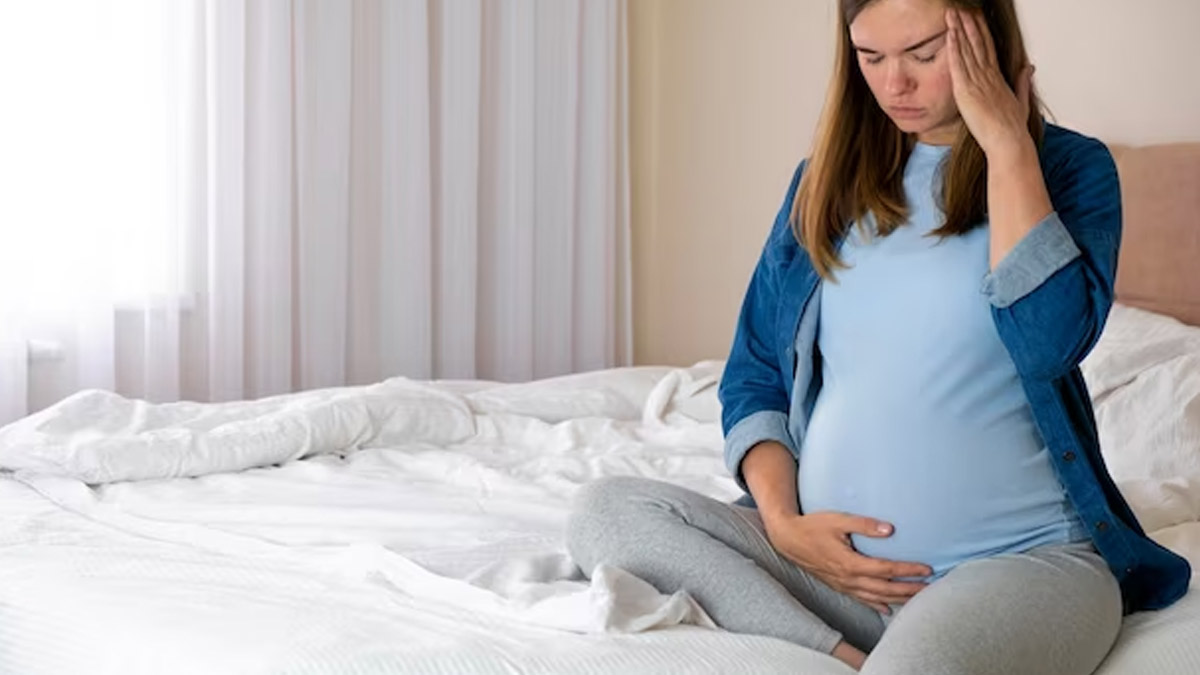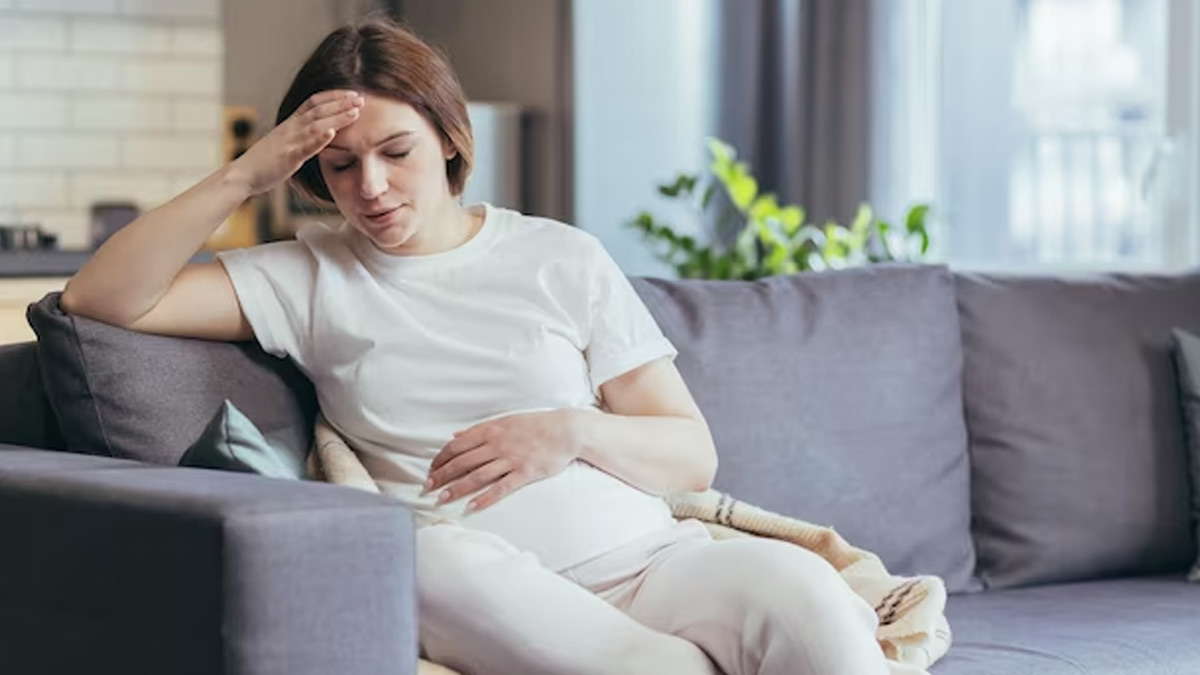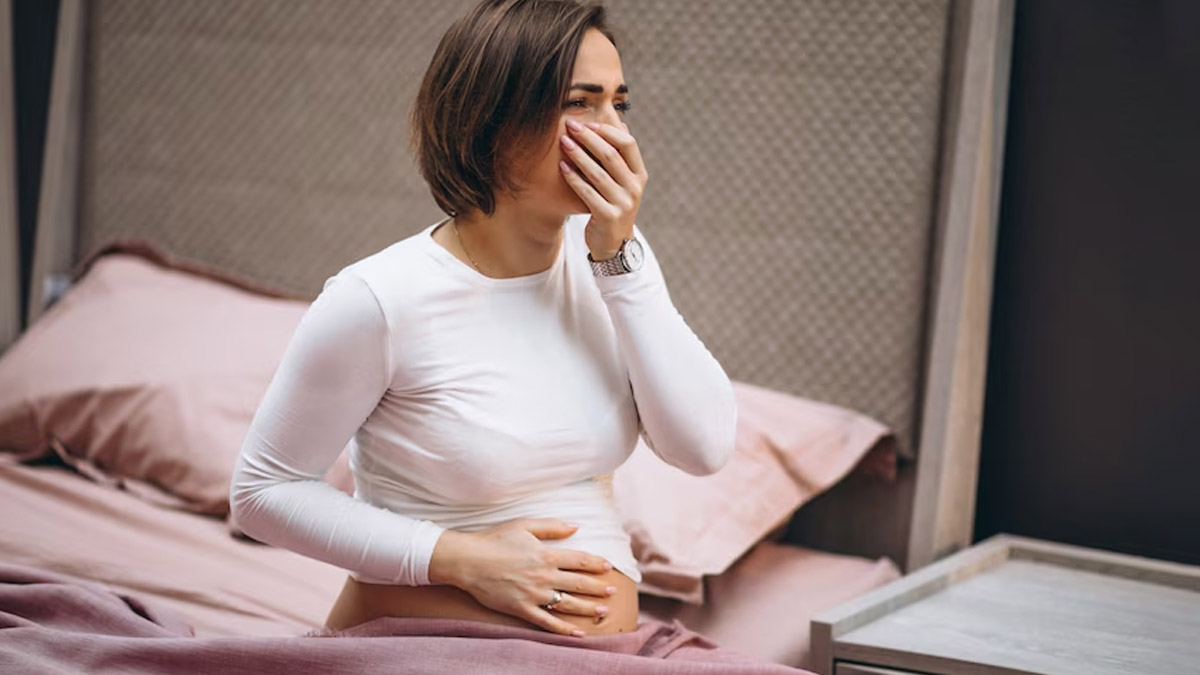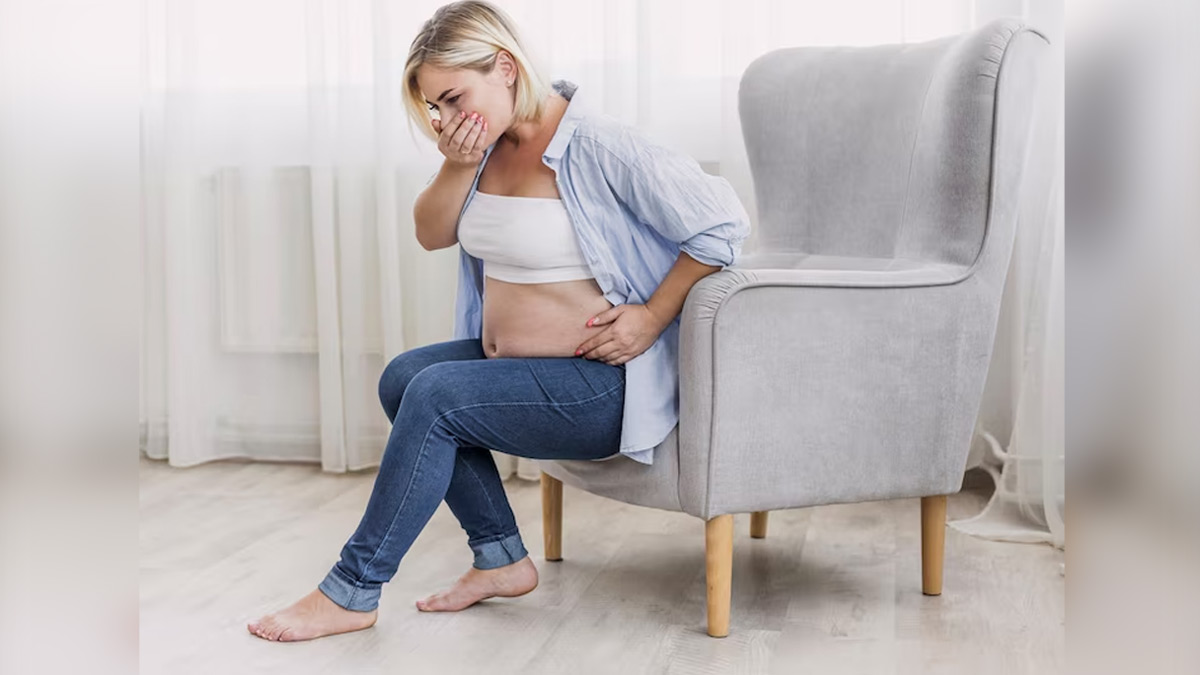
The body goes through several changes during pregnancy, and one challenge is haemorrhoids, which can be uncomfortable and inconvenient. They are swollen and inflamed veins located in the rectum or anus and can develop internally or externally. Dr Pradeep Joshi, MBBS, MS, MCh, Senior Consultant Surgical Gastroenterologist, Regency Superspeciality Hospital, listed the causes and prevention of haemorrhoids during pregnancy.
Table of Content:-
According to the World Journal of Gastroenterology, haemorrhoids during pregnancy are extremely prevalent, especially in the third trimester.
Symptoms Of Haemorrhoids
During pregnancy, the symptoms of haemorrhoids can vary from mild discomfort to more pronounced issues.

Itching and Irritation
Itching and irritation at the anus can be brought on by haemorrhoids.
Swelling and Inflammation
Haemorrhoids can become swollen and inflamed, causing a noticeable bulge around the anus.

Pain and Discomfort
Haemorrhoids can be painful, especially during bowel movements. The act of passing stools can exacerbate the discomfort and may result in a sharp or throbbing pain around the anus.
Bleeding
Pregnant women may notice bright red blood on the toilet paper, in the toilet bowl, or on the surface of the stool.
Also Read: Osteoporosis During Pregnancy: Expert Lists Ways To Promote Bone Health
Causes Of Haemorrhoid During Pregnancy
According to the Office on Women's Health (OASH), haemorrhoids affect 50% of pregnant women. Dr Joshi said that several factors can contribute to the development of haemorrhoids, which are as follows:

Increased Pressure
Dr Joshi said, “The growing uterus puts pressure on the pelvic veins and the inferior vena cava, leading to increased pressure in the rectal area. This pressure can cause the blood vessels to swell and form haemorrhoids.”
Hormonal Changes
Pregnancy hormones, such as progesterone, can relax the walls of blood vessels, making them more susceptible to swelling and inflammation.
Constipation
Dr Joshi said, “Many pregnant women experience constipation due to hormonal changes and pressure on the intestines from the growing uterus. The chance of getting haemorrhoids can rise when one strains during bowel motions.”
Also Read: Pregnancy Care: Expert Explains Benefits Of Walking
How To Prevent Haemorrhoids
Dr Joshi listed the prevention strategies for haemorrhoids during pregnancy as follows:

High-fibre diet
Consuming a diet rich in fibre can help prevent constipation and promote regular bowel movements. Make sure you include fruits, vegetables, whole grains, and legumes in your diet.
Drink plenty of water
Staying hydrated helps soften the stool and prevent constipation. Dr Joshi suggested that you aim for drinking at least 8-10 glasses of water per day.

Exercise regularly
Dr Joshi said, “Regular physical activity can help stimulate bowel movements, improve circulation, and reduce the risk of haemorrhoids. Engaging in low-impact exercises such as walking, swimming, and prenatal yoga can be beneficial.”
Avoid prolonged sitting or standing
Long periods of standing or sitting can put more strain on the rectal area. Take breaks and try to move around regularly.
Practise proper bathroom habits
Dr Joshi noted, “Straining during bowel movements can exacerbate haemorrhoids. Use a squatting position, if possible, by elevating your feet on a small stool while on the toilet.”
Use moist toilet paper or wipes
Dry toilet paper can be harsh on the sensitive rectal area. Consider using moist wipes or toilet paper to clean yourself after bowel movements.

Avoid heavy lifting
Lifting heavy objects can strain the rectal area and increase the risk of haemorrhoids. If you have a heavy object to lift, ask for assistance.
Bottomline
Dr Joshi said, “If you develop haemorrhoids during pregnancy, it is essential to consult your healthcare provider for appropriate management and treatment options. They may recommend topical creams or ointments, stool softeners, or other measures to relieve discomfort and reduce swelling.”
Disclaimer
The information provided here is for informational purposes only, and it's always best to consult with a healthcare professional for personalised advice.
Also watch this video
How we keep this article up to date:
We work with experts and keep a close eye on the latest in health and wellness. Whenever there is a new research or helpful information, we update our articles with accurate and useful advice.
Current Version
